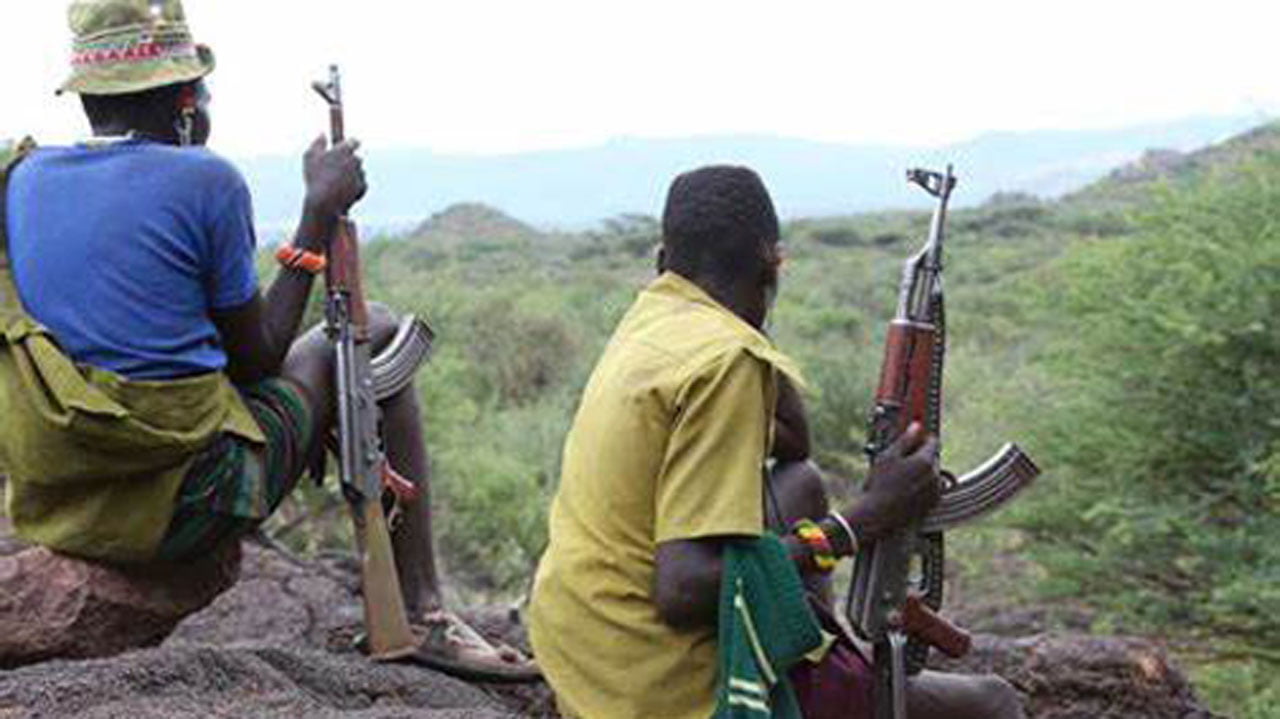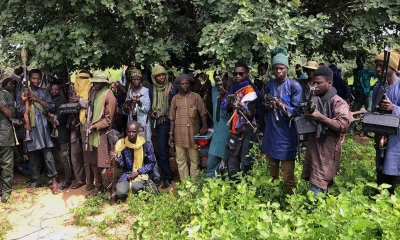NEWS
Katsina Peace Deal Generates Controversy as Notorious Bandit Kingpin Appears to Back Dialogue

In a significant and controversial development in the ongoing fight against insecurity in Northwest Nigeria, a 70-year-old bandit kingpin, Sani Geza, has expressed excitement over a peace agreement reached between community leaders and armed groups in Matazu Local Government Area of Katsina State. This is not an isolated incident; it is part of a broader, and controversial, strategy by the Katsina State Government to restore peace through a combination of military operations and dialogue. The government’s approach, which is largely community-led, involves negotiating with gunmen and meeting their demands for the construction of schools, hospitals, and grazing reserves. While this new approach has offered a glimmer of hope to some communities, it has also sparked a debate on the long-term effectiveness of appeasing armed criminals.
The news was first made public on Monday by Zagazola Makama, a well-known counter-insurgency expert. Geza, described as one of the oldest bandit leaders in the state, spoke on Sunday after the dialogue session. In a video released by Makama, Geza described the peace deal as a long-awaited opportunity for his group to embrace a normal life. “This is what we have been seeking for a very long time. Today, God has made the dream come true. Our hope is that this peace will be sustained and not wasted,” he said. According to Makama, the kingpin noted that many of his followers had also yearned for reconciliation and a break from years of conflict. The local officials present at the meeting confirmed that the agreement was part of ongoing initiatives to restore peace across troubled parts of the state through dialogue, confidence-building, and community participation.
This latest development in Katsina’s security strategy is a double-edged sword. On one hand, it represents a desperate effort by communities and local leaders to find a way out of the violence that has ravaged the region for years, claiming thousands of lives and displacing countless people. On the other hand, it has been met with significant criticism, as many analysts and rights activists argue that negotiating with criminals only emboldens them. The state government itself has a history of failed peace deals; in fact, a previous amnesty program collapsed and worsened the insecurity, according to Dependable NG. The current Governor, Dikko Umar Radda, had initially adopted a hardline approach but has since entered into negotiations in several local government areas, including Dan Musa, Jibiya, Batsari, Kankara, and Kurfi, with the hope of restoring stability.
The history of failed peace deals in the North-West, particularly in Katsina and Zamfara, provides a crucial context to this new development. Experts and security analysts point to several reasons for these failures, including the fragmented nature of the banditry networks, which are made up of rival gangs with no central command structure. This means that a deal with one group does not guarantee peace from others. Furthermore, many of the bandits are driven by a purely criminal and economic agenda, namely kidnapping for ransom, extortion, and cattle rustling, and not a coherent political or ideological goal. This makes them less susceptible to dialogue and more likely to use peace talks as a means to regroup, rearm, or extort funds. The dialogue also has a significant psychological impact on the victims, who are forced to witness the very people who killed, raped, and abducted their loved ones being “rewarded” with peace deals. Many victims’ families have expressed their frustration and anger over the government’s perceived failure to deliver justice.
The ongoing peace talks, however, also reveal a key flaw in the government’s overall security strategy: the imbalance of firepower and a lack of a coordinated, sustained military presence. As Dependable NG points out, local militias armed with pump-action shotguns are no match for bandits with AK-47s. Many local leaders have resorted to dialogue out of a lack of options, as they believe the federal government is not providing adequate support for military operations. While a peace deal in a single local government area might offer a temporary lull in violence, it risks creating a “peace of the graveyard,” where bandits simply move to other areas to carry out attacks. The fact that the bandits’ demands include the construction of schools and hospitals is a chilling reflection of the state’s failure to provide basic social amenities in rural areas, which has been identified as one of the root causes of the crisis.




